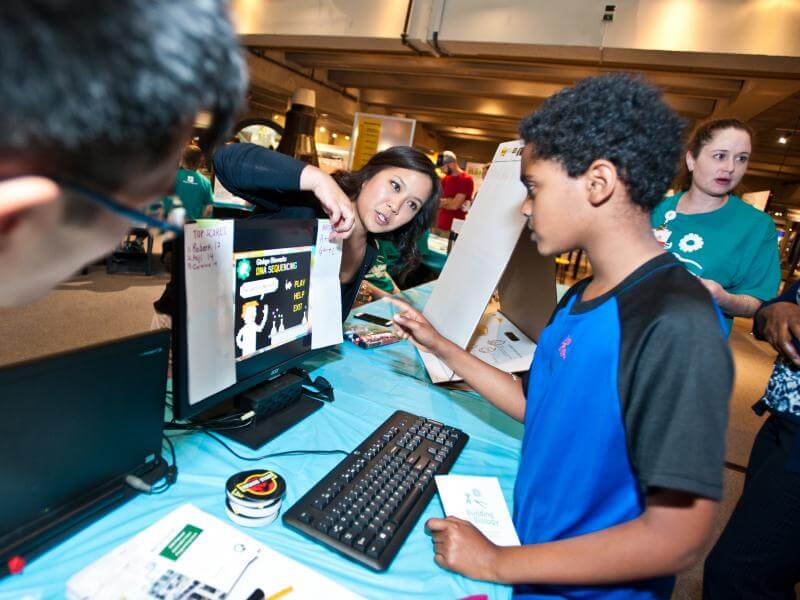STS approaches to public engagement with science: Synthetic biology
Rae Ostman, Arizona State University; Ira Bennett, Arizona State University; Stephanie Long, Science Museum of Minnesota; David Sittenfeld, Museum of Science; Jameson Wetmore, Arizona State UniversityPosted: July 21, 2017

This presentation will share STS approaches to engaging public audiences and scientists in conversations about emerging technologies, focusing on several related projects that consider synthetic biology. These projects share a common, overarching objective to change the way we as a society think, learn, and talk about science and technology.
The Frankenstein Bicentennial Project is developing a suite of transmedia learning experiences that explore synthetic biology and other technologies, including an alternate reality game, creative making activities, and online challenges. The project is studying learning in a transmedia environment and investigating the way different experiences contribute to learners’ sense of self-efficacy related to STS ideas. Over 50 organizations will organize events in January, 2018 to coincide the 200th anniversary of the publication of Mary Shelley’s novel Frankenstein, which will feature these transmedia experiences. The Frankenstein transmedia project is funded by NSF.
Storming the Castle is an interactive museum theatre program that considers the possible promises and perils of synthetic biology. This comedy uses the Frankenstein story to raise questions about responsible innovation. Project evaluation considered how museum theatre encourages learning and complements other types of experiences typically offered by science museums. Storming the Castle is funded by IMLS. Building with Biology brings scientists and public audiences together in conversations and hands-on activities about synthetic biology and the ways it is interconnected with society.
Building with Biology resource kits were distributed and used by 200 science museums and universities in events held in 2016. Building with Biology forum programs, “Should We Engineer the Mosquito?” and “Should We Edit the Genome?,” were held at around 40 locations. Project evaluation examines the impact of these experiences on both public and scientist participants. Building with Biology is funded by NSF.
These projects are part of a longstanding collaboration among faculty at the School for the Future of Innovation in Society (SFIS) at Arizona State University and staff at science museums that are part of the National Informal STEM Education Network (NISE Net). The mission of SFIS is to cultivate and extend the ideas that: 1) Innovation is a complex process in which social and technical actions and considerations continually interact to create similarly complex, real-world outcomes; 2) The usefulness and even the validity of knowledge relevant to human problem-solving reflect social context and may arise from multiple sources and perspectives; and 3) The processes of creating knowledge and building more desirable futures need to be more interdisciplinary, more anticipatory, and more democratic. NISE Net is a community of informal educators and scientists dedicated to supporting learning about science, technology, engineering, and math (STEM) across the United States. The Network achieves its reach and impact through the participation of around 600 partner organizations in Network projects and activities.
The presentation at 4S will include: hands-on and forum activities from Building with Biology; making activities and the alternate reality game from Frankenstein; and a videotaped version of Storming the Castle. The presenters will also share research and evaluation findings related to public learning of STS ideas.
Published: 01/30/2023
